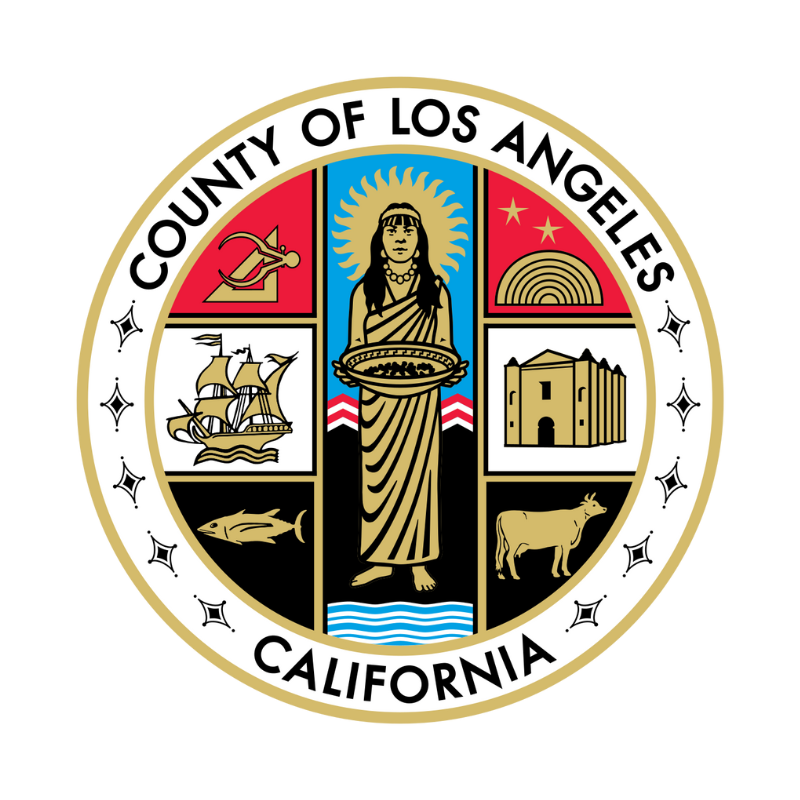|
|
|
 On July 9, 2019, the Los Angeles County Board of Supervisors established the Family Assistance Program (FAP) to support families following an in-custody death or fatal use of force while in custody of the Los Angeles County Sheriff’s Department (LASD). The Department of Mental Health implemented this program as a pilot. In February 2022, the County approved establishment of a permanent FAP within the LA County Office of Violence Prevention, in the Department of Public Health. The goal of this program is to improve compassionate communication and provide trauma-informed support to families who lost a loved one due to a death while in custody of the Sheriff's Department. On July 9, 2019, the Los Angeles County Board of Supervisors established the Family Assistance Program (FAP) to support families following an in-custody death or fatal use of force while in custody of the Los Angeles County Sheriff’s Department (LASD). The Department of Mental Health implemented this program as a pilot. In February 2022, the County approved establishment of a permanent FAP within the LA County Office of Violence Prevention, in the Department of Public Health. The goal of this program is to improve compassionate communication and provide trauma-informed support to families who lost a loved one due to a death while in custody of the Sheriff's Department.
The FAP consists of trained mental health clinicians who receive and respond to incidents concerning Los Angeles County Sheriff’s Department officer-involved shootings 24/7. These shootings may take place in custody or in community, hospital, or jail settings. FAP’s mental health clinicians support families, friends and witnesses impacted by such incidents and provide relevant mental health services, burial costs and other services when needed. Los Angeles County’s Family Assistance Program’s mission is to provide trauma-informed responses, services and support to families and friends and witnesses to the incident following an in-custody death or fatal use of force.
Who We Work With
 We collaborate with other professionals from various agencies such as Los Angeles County Sheriff Department’s Homicide Bureau - Custody Compliance & Sustainability Bureau, Los Angeles County Medical Examiner, Office of Inspector General, Los Angeles County Department of Mental Health, District Attorney Bureau of Victim Services, and the Sheriff Civilian Oversight Commission and many other entities to support and benefit the individual (s) experiencing trauma due to the death of a family member or friend in an officer-involved shooting and in custody deaths. We collaborate with other professionals from various agencies such as Los Angeles County Sheriff Department’s Homicide Bureau - Custody Compliance & Sustainability Bureau, Los Angeles County Medical Examiner, Office of Inspector General, Los Angeles County Department of Mental Health, District Attorney Bureau of Victim Services, and the Sheriff Civilian Oversight Commission and many other entities to support and benefit the individual (s) experiencing trauma due to the death of a family member or friend in an officer-involved shooting and in custody deaths.
|
For questions about the Family Assistance Program, please contact: |
|
Linda Reyna, LCSW
Clinical Social Work Supervisor
(626) 293-2995
LReyna@ph.lacounty.gov
|
Gisela Batres, LCSW
Senior Clinical Social Worker
(213) 435-7113
GBatres@ph.lacounty.gov
|
Chanique Groenow, MSW, LCSW
Psychiatric Social Worker II
(213) 793-9506
CGroenow@ph.lacounty.gov
|
|

Who We Work With
FAP employs Licensed Clinical Social Workers (LCSWs) who are trained mental health clinicians to provide comprehensive support and services to families grieving the loss of a loved one due to an officer involved shooting or in custody deaths. Their roles encompass both immediate and long-term interventions tailored to meet the unique needs of affected families and communities.
| Services FAP Clinicians Provide |
| 1. Crisis Counseling and Stabilization |
Immediately following the incident they provide crisis intervention and stabilization services to support families through the initial shock and grief, helping to prevent further trauma. |
2. Assistance with Burial Expenses |
Recognizing the financial burden that can accompany such losses, OVP clinicians may also provide families with support in covering burial expenses, either through direct assistance for eligible expenses. |
| 3. Trauma-Informed Supportive Counseling |
Provide immediate and ongoing supportive counseling to families, helping them navigate the complex emotions and trauma following an officer-involved shooting. This counseling is trauma-informed, ensuring sensitivity to the traumatic nature of the loss. |
| 4. Assessment of Trauma and Mental Health Needs |
Early assessment of the affected families' and community's trauma and mental health needs is crucial. Conduct comprehensive assessments to identify these needs, aiming to address them proactively. |
| 5. Grief Counseling |
Specialized grief counseling is provided to help families process their loss, work through their grief, and embark on the healing process. |
| 6. Communication and Information Coordination |
Communicate with families to answer their questions regarding the aftermath of an in-custody death, ensuring they receive timely, coordinated, and respectful information. This includes guidance about the investigative process and what to expect in the days and months following the incident. |
| 7. Risk Factor Mitigation |
By identifying and addressing risk factors early, clinicians work to decrease the severity of potential long-term psychological impacts on the family and community. |
| 8. Linkage to Mental Health and Support Services |
Connect individuals and families with necessary mental health services, including faith-based and other social services, ensuring a network of support tailored to their specific needs. |
| 9. Case Consultation |
Clinicians offer case consultation services to affected families, guiding them through various processes and ensuring they have access to all available resources. |
| 10. Advocacy and Liaison Services |
Acting as advocates, clinicians liaise with law enforcement, legal entities, and other organizations on behalf of the family, navigating legal processes and advocating for the family’s rights and needs. |
| 11. Support Groups and Community Resources |
Connecting families with support groups and community resources offers additional support, allowing them to share their experiences and find communal strength. |
| 12. Family Counseling and Psychoeducation |
Offering family counseling helps improve communication and support within the family unit, while psychoeducation helps them understand their experiences and develop coping strategies. |
| 13. Long-term Counseling and Follow-up Support |
Provide long-term followup and support, adjusting care as the family's needs evolve, ensuring ongoing support throughout the healing journey. |
| 14. Cultural Competency |
Services are delivered with cultural sensitivity and competency, particularly acknowledging the nuances of race, culture, and systemic issues related to officer/deputy-involved use of force. |
|
Family Assistance Program Timeline
|
November 2016 | OIG Letter
Office of the Inspector General (OIG) requests the Civilian Oversight Commission (COC) address communication issues with families following a death in-custody or as a result of a fatal use of force by LA County Sheriff's Deparment (LASD).
September 27, 2018 | COC Ad Hoc Report
COC Ad Hoc Committe presents the report of COC's monthly meeting, recommending creating clear, empathic communication, compassionate responses, and direct services for grieving families.
October 9, 2018 | BOS Motion
Board directs the Chief Executive Office (CEO) to create a program implementation plan based on the COC's recommendations.
June 19, 2019 | CEO Report Back
CEO recommends that the Board implement the FAP model as a pilot program to be lead by the Department of Mental Health (DMH) and funded by one-time AB 109 funds.
July 9, 2019 | BOS Motion
Board instructs DMH to establish FAP policies and procedures for burial assistance, compassionate, and trauma-informed support to families and CEO to devlope a funding plan for FAP.
August 2019 | Family Assistance Services Begin
DMH staff serving as Family Assitance Advocates for the pilot program begin to provide services, including burial assistance, to eligible families.
April 2021 | Initial Funding Proposal
Supervisors Hilda L. Solis and Holly J. Mitchell request $4 million to support FAP in their American Rescue Plan proposals to the CEO.
October 5, 2021 | CEO Report Back
DMH staff serving as Family Assitance Advocates for the pilot program begin to provide services, including burial assistance, to eligible families.
October 19, 2021 | BOS Motion
Motion calls for an implementation plan, budget and timeline to make FAP permanent, community engagement for improving FAP, and identification of a sustainable funding source as well as $100,000.
February 22, 2022 | OIG Report Back
OIG recommends plan to transition FAP Office of Violence Prevention (OVP) and an annual budget for personnel, burial costs, contracting with a community organization to engage trusted messengers and evaluation.
October 4, 2022 | Permanent Funding Approved
Board approves $1,530,000 in annual, ongoing AB 109 funding for a permanent FAP.
May 2023 | CEO Approves Hiring
Chief Executive Office approves staff item requests.
September 2023 | FAP Staffing Hired
OVP staff and consultant hired for FAP implementation.
To download a printable version of the FAP timeline, please click here. 
|
|
![]()


 On July 9, 2019, the Los Angeles County Board of Supervisors established the Family Assistance Program (FAP) to support families following an in-custody death or fatal use of force while in custody of the Los Angeles County Sheriff’s Department (LASD). The Department of Mental Health implemented this program as a pilot. In February 2022, the County approved establishment of a permanent FAP within the LA County Office of Violence Prevention, in the Department of Public Health. The goal of this program is to improve compassionate communication and provide trauma-informed support to families who lost a loved one due to a death while in custody of the Sheriff's Department.
On July 9, 2019, the Los Angeles County Board of Supervisors established the Family Assistance Program (FAP) to support families following an in-custody death or fatal use of force while in custody of the Los Angeles County Sheriff’s Department (LASD). The Department of Mental Health implemented this program as a pilot. In February 2022, the County approved establishment of a permanent FAP within the LA County Office of Violence Prevention, in the Department of Public Health. The goal of this program is to improve compassionate communication and provide trauma-informed support to families who lost a loved one due to a death while in custody of the Sheriff's Department. We collaborate with other professionals from various agencies such as Los Angeles County Sheriff Department’s Homicide Bureau - Custody Compliance & Sustainability Bureau, Los Angeles County Medical Examiner, Office of Inspector General, Los Angeles County Department of Mental Health, District Attorney Bureau of Victim Services, and the Sheriff Civilian Oversight Commission and many other entities to support and benefit the individual (s) experiencing trauma due to the death of a family member or friend in an officer-involved shooting and in custody deaths.
We collaborate with other professionals from various agencies such as Los Angeles County Sheriff Department’s Homicide Bureau - Custody Compliance & Sustainability Bureau, Los Angeles County Medical Examiner, Office of Inspector General, Los Angeles County Department of Mental Health, District Attorney Bureau of Victim Services, and the Sheriff Civilian Oversight Commission and many other entities to support and benefit the individual (s) experiencing trauma due to the death of a family member or friend in an officer-involved shooting and in custody deaths.